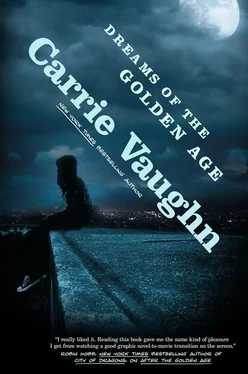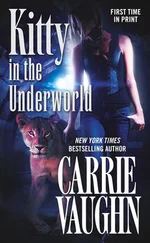They took off their jackets and masks, shoved them into their packs, transforming them back into normal teenagers who probably shouldn’t have been out this late but who probably wouldn’t get called on it. Five blocks away, they found a bus, and from there went to the Internet café they’d used before. Open twenty-four hours—Anna had checked. She gratefully ordered a coffee and gripped it tight to warm up her hands.
They found a booth in back of the café and made sure not to talk too loud. She scrolled through the pictures on Teddy’s phone, e-mailed them to herself, and used one of the Internet kiosks to print out the most likely looking documents of the bunch. The images were mostly not too blurry.
From a distance, the pages that Teddy arranged on the table looked like homework. Anna took a glance around the café, which was doing a pretty brisk business for ten o’clock at night. The patrons were diverse, from the punk-looking guys at the counter to the scattered nondescript blue-collar types getting off one shift or another. A pair of uniformed cops occupied a booth at the far end of the shop, and Anna’s heartbeat sped up. But they weren’t paying any attention to her, and she quickly turned away.
Did this ever get less stressful? Her grandmother never struck her as someone who’d spent a significant amount of her life stressed out—so how did you be a superhero without freaking out every time you saw a cop? Yet another thing to work on.
Teddy unhappily shook his head at the spread of pages. “I have no idea if this is going to do us any good. Wow, does that much money even exist?” He pointed at the number on what must have been a retirement account statement.
Anna turned the sheet around and looked at it. The amount wasn’t that big—well, not West Corp big. Anna had a rough idea what her mother’s company was worth, and this was a drop in that bucket. But she didn’t say that. She bit her lip and didn’t say a word about how much her family was worth. Teddy was at Elmwood on a scholarship.
Compared to the average, Judge Roland made a good living, a good annual salary as a judge for the city court. She’d looked up how much he ought to be making so she’d be able to compare, and the first few bank statements and the retirement account Teddy had commented on—for a city pension fund—lined up with that. Nothing looked unusual.
Until she got to a second set of statements. Foreign bank transfers and accompanying records. Roland might have had a good explanation for having this; she didn’t know enough to be able to tell. But did one guy, even a high-ranking city judge, really ever make three six-figure money transfers in the space of two weeks? All after the date of Scarzen’s arrest?
“I think this is it.” She showed Teddy, who studied the page with a blank look. She couldn’t tell if he understood. “Trust me, this is it.”
“How do you even know this stuff?” Teddy said.
“I don’t know. Osmosis or something.” Every school day, her whole life, she’d go to her mother’s office and give her report. Used to be, she’d spend more than a scant few seconds there, trying to detach from the situation as quickly as she could. Used to be, her mother would have her work spread everywhere, printouts with arcane lists of numbers, highlighted with colors or marked with bold, and Anna would ask, “What’s that?” And Celia never said, “It’s nothing, never mind.” Celia always told her, showing her what the pages were and what they did. She never learned what a balance sheet was, she always just knew. Her and Bethy both, but Bethy was the one who’d probably follow in Celia’s footsteps and take over the business.
Anna never thought she’d actually need to know what a financial statement was. But suddenly she did, and she knew these looked squirrelly. Mom would know what the oddness meant. The judge had never been investigated—he’d never needed to be. He was smart enough to pay his taxes and not flaunt the windfall that exceeded his income. But a large amount of money was tucked away, waiting for retirement in another country.
She put the suspicious pages on top of the stack, shoved the whole thing into an envelope, and left the coffee shop for the Eye ’s offices. Before handing it off to Teddy, Anna included a note in the package signed in large, anonymous block letters: “Espionage.”
Teddy looked at it. “That’s it? That’s our team name? They’ll think it’s one person, not a team.”
“Better to throw them off our track, right?” she said, grinning.
He said, “I kind of like it.”
The Eye ’s main office was open twenty-four hours, reporters and staff working late, but after concentrating herself into a headache, Anna was able to tell Teddy where the people were and which parts of the building he had to avoid. The editor in chief was gone for the night. Her office was empty. Teddy entered through a back wall and left the package there, then retreated along darkened hallways to the back alley where Anna was waiting for him.
“I think we’re getting better at this,” Teddy said brightly as they walked back to the bus routes they’d take home.
“That’ll depend on what happens tomorrow,” she said, unconvinced. Hopeful, but not sure that the Eye would believe the evidence they’d handed over.
“So. Um. You have a chance to think about what I asked?”
On the contrary, she had purposefully ignored the question. She pursed her lips and considered. “Can you maybe ask me again when we aren’t running around all sleep deprived and wearing ski masks? When we’re not being Ghost and Compass Rose, I mean.”
“Yeah sure, okay, I can do that,” he said. But he had that crestfallen expression she’d been trying to avoid.
They split up and headed for home after monosyllabic farewells.
* * *
Anna woke up early to check the Eye website, Rooftop Watch, and other superhero groupie sites. She figured what was most likely: The Eye wouldn’t publish anything about Judge Roland’s corruption without doing some checking. So there wouldn’t be anything. But that wasn’t what happened.
“Who Is Espionage?”
That was the headline and lead story, accompanied by a photo of the note she’d written. It was a shock to see her note as front-page news. But a kinda cool shock. The scoop about the judge was there in a side article, along with various comments about the judge not responding to repeated phone calls and the word “alleged” in front of everything. The Eye also printed a bunch of additional information, stuff she and Teddy hadn’t delivered—so the paper had been keeping its own file on Roland for years and already had a stack of allegations. They published the new scoop because it gave them the concrete proof they needed to go public.
But the story the Eye was most interested in was Commerce City’s newest and most mysterious hero. The article was filled with speculation and quotes from police and professional superhero watchers, academics and psychologists. The article drew the line between this and the original evidence collected against Scarzen and suggested that maybe it was a personal vendetta. One of the commentators got close to the mark, speculating that Espionage’s power must have been geared toward “clandestine activities”—a phrase Teddy would probably latch on to. Invisibility, teleportation, and mind control were all suggested.
Nobody suggested that Espionage could be more than one person. Anna couldn’t have come up with a better disguise than that in a million years.
But there was no sign that anything was going to happen to Judge Roland. Roland reported a theft from his house to the police, but the police investigated and couldn’t find any sign of a break-in, no busted locks, not so much as a fingerprint, and Roland wouldn’t give an inventory of exactly what had been taken. He claimed only that items in his safe had clearly been tampered with. Roland’s lawyer threatened a libel suit, but the Eye countered with the evidence it had in hand, and the police promised to launch an investigation, and the story faded to sidebars and afterthoughts.
Читать дальше












